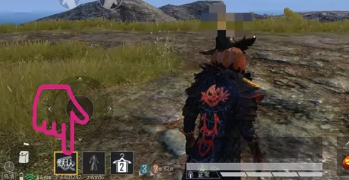what crypto to buy 2021 People also ask
Reaffirming that the army will be mobilized to expel all illegal immigrants, Trump's latest statement revealed more details. On December 12, local time, US President-elect Trump reiterated in an interview that he plans to use the army to the maximum extent permitted by law and promote large-scale expulsion of illegal immigrants. Trump called illegal immigrants "an invasion of the country" and promised to cooperate with federal resources, including the National Guard, to quickly implement deportation. It is reported that Trump plans to declare a state of emergency, allocate resources to support this action, and may build new facilities to resettle immigrants waiting for repatriation. He also stressed that he hopes to reduce the demand for detention facilities through rapid expulsion. The analysis pointed out that although the National Guard has been used to support border patrols before, including the Democratic and Republican parties, it has not directly participated in immigration law enforcement. This time, the Trump team plans to use the military to provide support in transportation, infrastructure construction and intelligence, but the arrest will be carried out by immigration officials. Trump also suggested in the interview that he would expel all illegal immigrants in the next four years. According to data from the US Department of Homeland Security, as of January 2022, there were about 11 million illegal immigrants in the United States, and this number may increase recently. In this regard, some studies believe that the full implementation of the plan is costly, or it will have a far-reaching impact on industries that rely on immigrant labor. On November 18, local time, US President-elect Trump confirmed on the social media platform that the US military would be mobilized by declaring the country into a state of emergency, thus expelling illegal immigrants from the United States. (CCTV News)Market News: Russia has established direct contacts with the Political Committee of the Sharm el-Liberation Organization, and these contacts are constructive.Ambassador of China to the United States: "Going to China" is the real risk of global supply chain. Xie Feng, China's ambassador to the United States, said on the 11th that "going to China" is the real risk of global supply chain. Speaking at the annual dinner of u.s.-china business council held in Washington that night, Xie Feng said that in the face of protectionism, China's determination to comprehensively deepen reform and expand high-level opening-up has always been the same, its goal of promoting stable and far-reaching Sino-US relations has always been the same, and its desire to welcome enterprises from all countries, including American enterprises, to share development opportunities has always been the same. Xie Feng said that since the Third Plenary Session of the 20th Central Committee of the Communist Party of China, a series of heavy reform measures have come into effect, and access to the manufacturing sector has been fully liberalized. For the first time, negative list management has been established for cross-border service trade nationwide, and wholly foreign-owned hospitals have been allowed to be set up in nine places including Beijing. Eleven foreign-controlled or wholly foreign-owned brokers, including JPMorgan Chase, have successively settled in China, and telecommunications, internet, education, culture and medical care have been opened in an orderly manner, releasing huge market dividends. Xie Feng said that the weaponization of tariffs closes the market and loses opportunities. The "small courtyard and high wall" can't stop the spring breeze of innovation, but will draw the land as a prison. "Going to China" under the guise of "removing risks" is the real risk of the global supply chain, and treating "national security" as a "panacea" to discredit and suppress is itself creating insecurity. Only when Sino-US cooperation is done well will the two countries and the world be more prosperous and safer. U.s.-china business council, founded in 1973, is a non-governmental trade organization with China established by the United States before the establishment of diplomatic relations between China and the United States. It has long been committed to promoting the development of Sino-US relations and economic and trade cooperation. At present, the Committee has 270 American member enterprises doing business in China.
Intel executives: Over time, we may sell some of our positions in Mobileye.Cipher digital currency concept stocks generally rose, with Bakkt Holdings rising by 12.2%, Riot Platforms rising by 9.4%, TeraWulf rising by 7.3%, Robinhood rising by 4.2%, and Ethereum ETF QETH rising by over 3.9%. President-elect Trump announced that he would take major actions against cryptocurrencies. Bitcoin rose more than 0.7%, reaching a daily high of $102,000.ECB sources: Some people think that the ECB overestimates economic growth. In the case of Trump's tariff increase, the economic growth next year may be less than 1%.
Market News: Russia has established direct contacts with the Political Committee of the Sharm el-Liberation Organization, and these contacts are constructive.CITIC Securities: It is estimated that the reverse repo rate will drop by 40-50bps next year, and the LPR and loan interest rates may drop even more. CITIC Securities Research Report believes that the Central Economic Work Conference will be held in Beijing. On the whole, the policy level is fully aware of the grim situation that external pressure may increase significantly within next year, and has put forward a series of requirements such as stable growth, stable prices, stable employment and stable people's livelihood. From the perspective of fiscal policy, the amount of financial instruments supporting the real economy will be comprehensively increased, the government's disposable financial resources will be significantly improved, and the fiscal expenditure structure will be tilted to the marginal consumption of people's livelihood. From the perspective of monetary policy, the meeting called for the implementation of a moderately loose monetary policy, timely lowering the RRR and cutting interest rates. We expect the reverse repo rate to drop by 40-50bps next year, and the LPR and loan interest rates may drop even more.LME metal futures closed down, while LME copper futures closed down $100 to $9092/ton. LME aluminum closed down $2 to $2,600/ton. LME zinc futures closed down $50 to $3,075/ton. LME lead closed down $38 to $2006/ton. LME nickel futures closed up $310 to $16,168/ton. LME tin closed down $423 to $329,534/ton. LME cobalt was flat at $24,300/ton.
Strategy guide 12-14
Strategy guide
12-14
Strategy guide 12-14
Strategy guide 12-14
Strategy guide 12-14
Strategy guide
12-14
Strategy guide


























